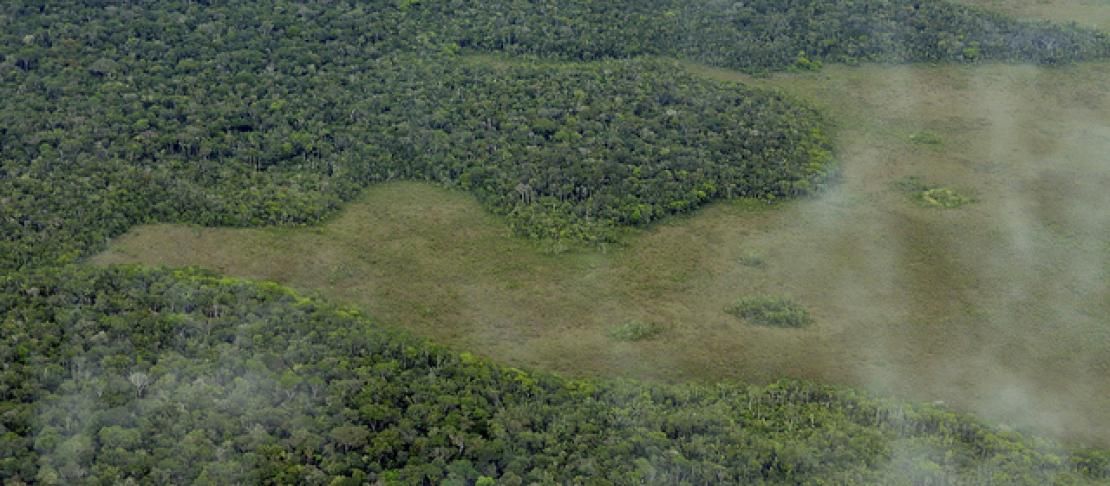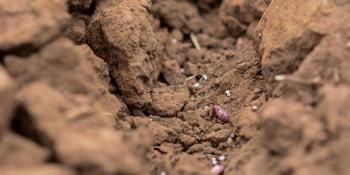Zero deforestation and sustainable production: a tenable couple?

Deforestation in the Brazilian Amazon now averages 5000 km2/year, but can local people support their livelihoods in this context? And what can other nations learn from Brazil?
Pablo Pacheco and Sophia Gnych, scientists from the Centre for International Forestry Research (CIFOR) and the CGIAR Research Program on Climate Change, Agriculture and Food Security (CCAFS), analyzed long-term efforts and the ways forward for reducing deforestation in Brazil and Indonesia in a recent analysis post called Why ‘zero deforestation’ is only one piece of the sustainability puzzle. CIFOR, CCAFS and partners also produced the short video below.
In Brazil, the authors credit stabilization of deforestation rates to the substantial synergy created by government and private sector stakeholders committing to common goals and increasing accountability through effective monitoring. However, they counsel that ensuring economic opportunities for smallholder and landless women and men in forested regions remains a challenge. Pacheco finds that the joint goals of smallholder inclusion and sustainable supply may play a more catalytic role in Indonesia. They write:
For a solution to be long lasting, it needs certain characteristics: It should make economic sense for all stakeholders, it should support the equitable sharing of costs and benefits related to the new policy environments and market constraints, and it should empower local stakeholders to use natural resources in more sustainable ways.
Solutions
CIFOR and CCAFS are collaborating with public and private actors in the transition towards more sustainable beef cattle and agricultural production through enhanced landscape governance in the “Green Municipality” of Paragominas, State of Pará, in the Brazilian Amazon. In this project, 'Linking sustainable production and enhanced landscape governance in the Amazon: Towards territorial certification (TerraCert),' stakeholders are forming innovative partnerships and exploring production options within the cattle and agricultural sectors to reduce deforestation and greenhouse gas emissions.
The authors summarize learning from Brazil that should guide forest management in the Amazon, Indonesia and elsewhere, with foci on how to develop legal frameworks and support cooperative interactions among public and private sector stakeholders.
According to Pacheco and Gnych:
Key lessons from effective institutional arrangements indicate that it is important to:
- Have clear legal frameworks with little scope for ambiguity that can be consistently enforced.
- Build a transparent monitoring system that is accepted by wider society.
- Adopt a stepwise approach, mainly with regard to land regularization and commitments to forest restoration.
- Use economic policy instruments, mainly fiscal transfers and credit, to enforce environmental regulations
- Further tighten policies constraining land uses, while creating incentives for good practice.
- Support agreements between the different key actors, such as retailers, industry and the state.
Brazil has achieved an effective solution because they have been able to find complementarities between public regulations and private commitments. Key for the solution to be long lasting is that stakeholders must have common notions of sustainability.
Remaining challenges
While frameworks and policies in Brazil - such as the soybean moratorium, land registration, and industry certifications tied to the farmers' registrations - have certainly been successful, a remaining challenge is to develop a climate-smart system of sustainable intensification in the beef industry that will effectively meet countries' needs to increase production and support small farmers. Currently, intensification is limited to large-scale ranchers and is often based on chemical inputs. Small- and medium-scale ranchers are less involved due to lack of access to capital, insecure land rights, and poor infrastructure.
Pacheco has found that sustainability of supply chains may lead to exclusion of smallholders if it is more expensive for a) industry to trace supplies from smallholders and b) smallholders to adopt recommended practices. Thus, innovation is needed to involve more smallholders - by making the route to sustainability easier for smallholders or by increasing positive incentives, for example.
Challenges remain at the institutional level as well, in Brazil and elsewhere. How can appropriate territorial and jurisdictional approaches under ‘produce and protect’ be systematically developed and scaled up? How can agricultural development and biodiversity conservation be balanced in a way that takes into consideration local socio-economic constraints and trade-offs? How can forest conservation and business models work together to also achieve greater social inclusion?
Read more
Sophia Gnych is a research officer at CIFOR investigating the impact of governance, trade and investment on forests.
Pablo Pacheco is a research scientist at CIFOR and leader of the CCAFS project Linking sustainable production and enhanced landscape governance in the Amazon: Towards territorial certification (TerraCert). Pablo Pacheco presented this research, progress, and solutions in "Shifting towards Sustainable Production Systems for Beef and Oil Palm" at the Annual World Bank Conference on Land and Poverty, March 14-18. Listen to the recording of this session.
Julianna White is program manager for CCAFS Low Emissions Agriculture.



